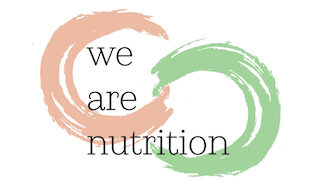We think it’s fair to say that no one really looks forward to the menopause, do they?
It seems that, as women, we spend our entire lives living in a state of perpetual change, anxiously awaiting the start of our periods at a relatively young age, living with them and all the dubious joys they bring for years and then waiting anxiously once again for the menopause to hit us with a vast array of new weird and wonderful symptoms that we have to adjust to once again.
When it comes to menopausal symptoms, we’re generally all aware of the most common ones, such as hot flashes, brain fog, reduced sex drive and palpitations… but there are lots of other little changes that we may not be aware of and, as such, they can creep up on us unawares, taking us quite by surprise.
Something that you may experience (and which may prove a bit distressing if you’re something of a foodie!) is a change in your sense of taste. There’s an intriguing link between oestrogen and saliva, and since your oestrogen levels start to dip in the menopause, you may find that your saliva flow starts to drop off as well.
Less saliva may mean you start to experience feelings of dry mouth, which can in turn reduce or change your taste sensation, so you may find that your favourite foods start to lose their appeal, or even that you find yourself instantly irritated with what’s on your plate.
Anything crunchy, salty, spicy or hot can potentially cause problems, so if you are experiencing issues in this regard, you may want to rethink what it is you’re eating right now.
Something else to note is that a reduction in saliva can also increase the risk of gum disease and tooth decay, so make sure that you’re brushing twice a day and flossing between meals to keep your mouth nice and healthy as you transition through the menopause (although this is also sound advice, no matter how old you are!).
It can be upsetting to discover that your sense of taste is changing, but don’t despair! Taste fluctuations can happen at any time, not just during the menopause, and if you’re patient you may find that this symptom resolves itself over time.
While you weather this particular storm, there are little tricks you can try to help put yourself at ease. If you’ve got really bad dry mouth, for example, using sauce on your food can help, as can choosing food based on texture rather than taste and mixing up different flavours on a regular basis to keep everything fresh and interesting.
And don’t avoid your favourite foods. Keep going back to them every few weeks to see if you find them enjoyable once again. If you’re really struggling and need any further help or advice from a menopause nutritionist, get in touch with Charlotte today to see how she can help.

